Key Shifts in Ecommerce Customer Care This Year
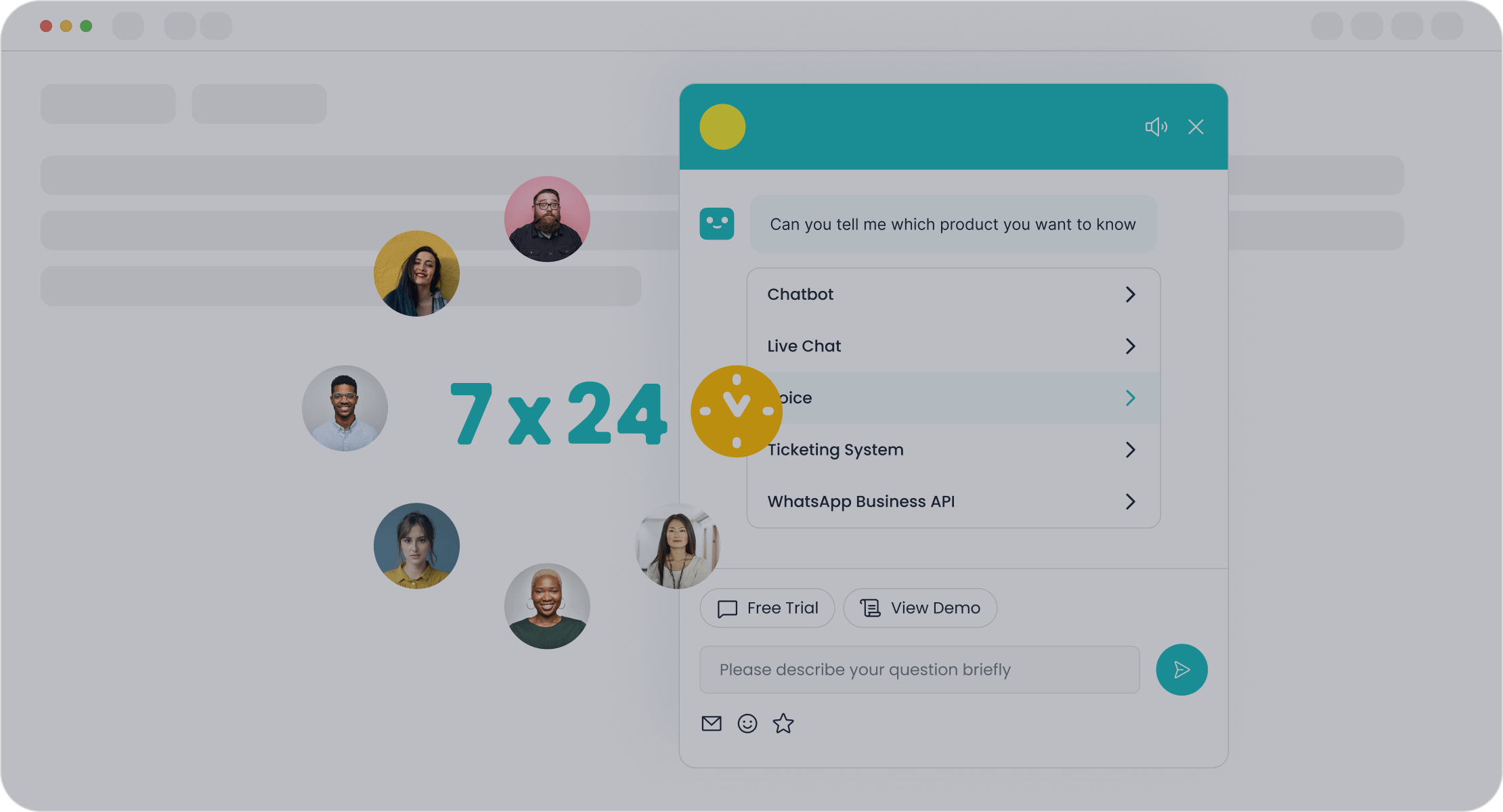
Ecommerce customer care in 2025 looks completely different from just a few years ago. Rapid advances in AI, automation, and omnichannel platforms have reshaped how people shop online. In 2025, Sobot AI helps brands deliver instant support, boosting customer satisfaction and loyalty. Retailers now use unified data to meet rising expectations as ecommerce trends and online shopping trends accelerate. Consumers demand transparency and value, making these new trends essential for ecommerce growth in 2025. Sobot leads the way, setting high standards for ecommerce customer care in 2025.
AI Personalization
Smarter Customer Interactions
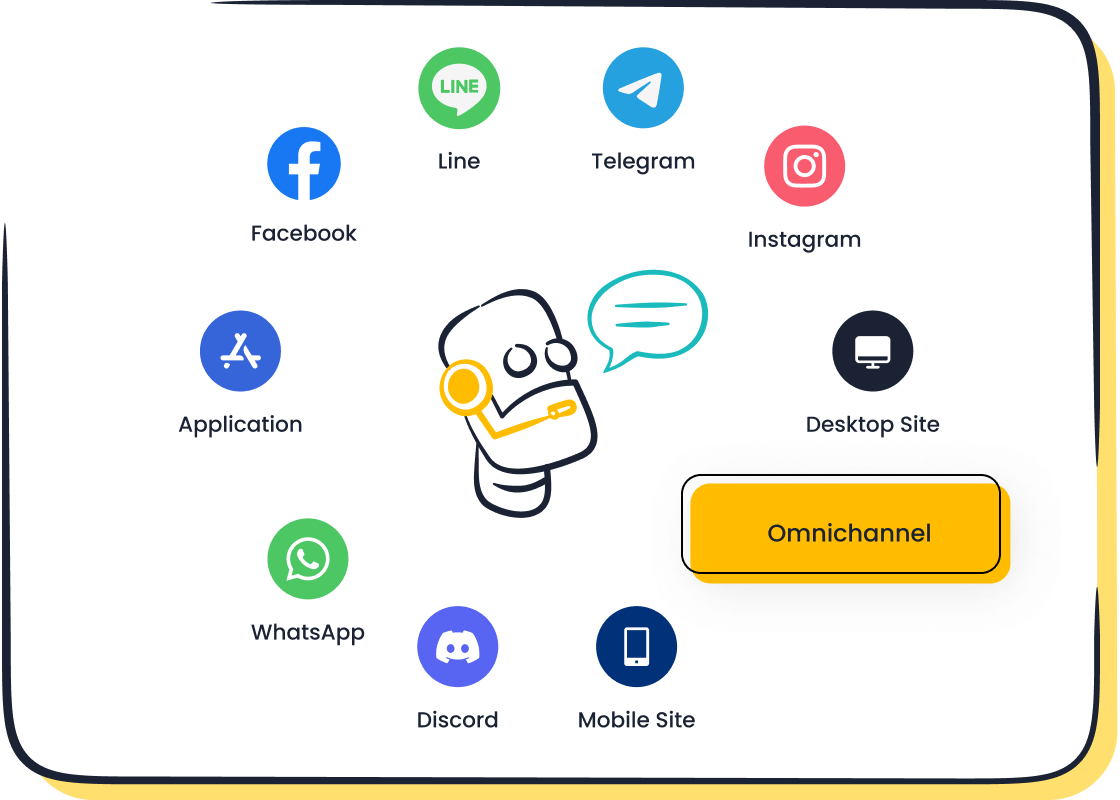
AI now drives a new era of ecommerce in 2025. Brands use advanced AI tools to deliver hyper-personalized experiences for every shopper. Sobot’s AI Chatbot stands out by providing real-time, multilingual support across channels like WhatsApp and SMS. This chatbot answers questions instantly, guides users through product choices, and even helps with order tracking. Customers receive tailored recommendations based on their browsing and purchase history. As a result, shoppers feel understood and valued.
A recent study in the Vietnamese e-commerce market found that AI-powered customer service increases satisfaction and business results. The research showed that customers value AI for its ability to meet expectations and deliver real benefits, not just for being easy to use. Higher satisfaction leads to more frequent use of AI and greater online shopping activity. These findings highlight how AI personalization shapes ecommerce customer care and drives positive outcomes for businesses and shoppers alike.
Sobot’s AI Chatbot boosts agent productivity by 70% and reduces costs by up to 50%. Agents can focus on complex issues while the chatbot handles routine questions. This division of labor improves efficiency and ensures customers get fast, accurate answers.
Predictive Support
AI in ecommerce does more than react to questions. It predicts what customers need before they ask. In 2025, Sobot’s AI analyzes customer data to anticipate issues, suggest solutions, and send proactive messages. For example, if a customer’s order is delayed, the system can notify them automatically and offer support options. This predictive support builds trust and keeps customers informed.
Retailers using Sobot’s AI solutions see higher conversion rates and improved loyalty. By understanding customer behavior, AI helps brands deliver the right message at the right time. Ecommerce in 2025 relies on these smart, predictive tools to set new standards for customer care.
Omnichannel Ecommerce Support
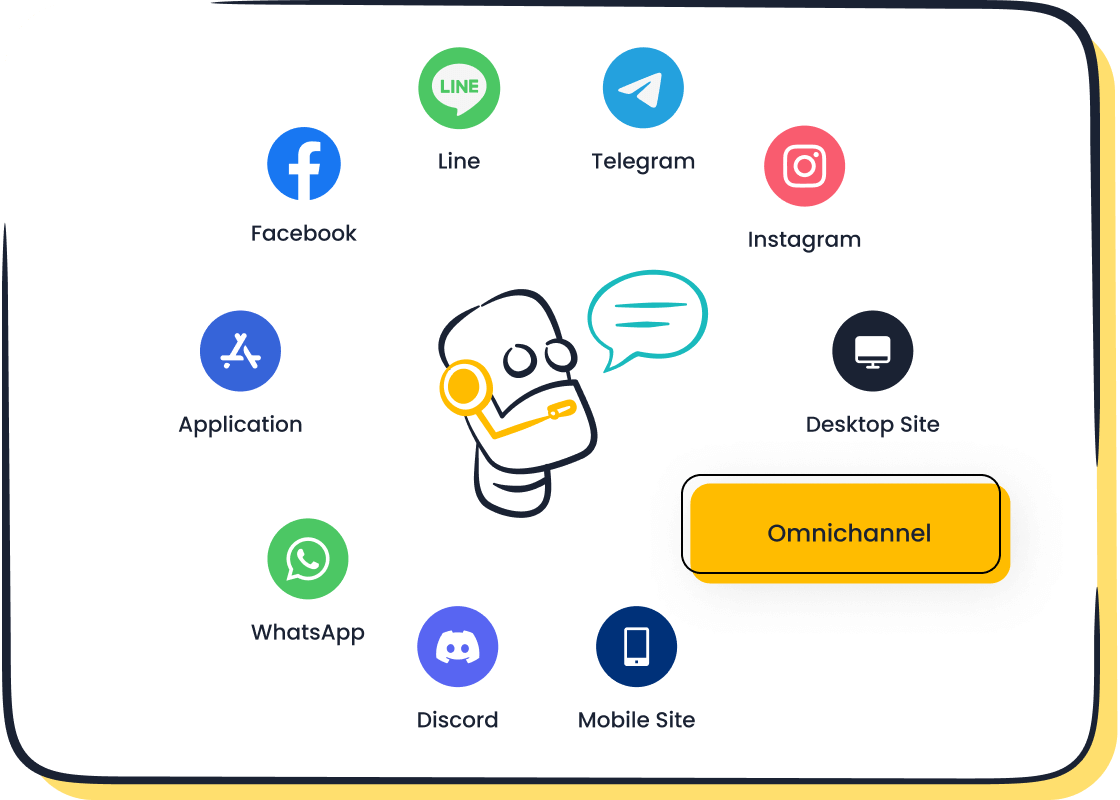
Unified Customer Data
Omnichannel support has become a game-changer for ecommerce in 2025. Brands now connect with shoppers across many channels, such as WhatsApp, live chat, and voice. Sobot’s unified platform brings all these conversations together in one place. This approach gives businesses a single view of each customer, making it easier to track orders, answer questions, and solve problems quickly.
A unified data system helps agents see every interaction a customer has had, no matter the channel. This means agents can give better answers and avoid repeating questions. Sobot’s solution lets teams access chat, email, and call history in one dashboard. As a result, customer service becomes faster and more personal.
| Aspect | Evidence | Impact on Ecommerce Businesses |
|---|---|---|
| Customer Engagement | 45% of firms reported better customer engagement due to omnichannel support. | Enhances interaction quality and frequency with customers. |
| Customer Retention | 35% of firms retained more customers through omnichannel strategies. | Improves loyalty and reduces churn. |
| Customer Lifetime Value (CLV) | 46% noted increased CLV with omnichannel engagement. | Drives long-term revenue growth. |
| Customer Preference | 70% of customers prefer brands offering multiple service channels. | Meeting customer expectations increases satisfaction. |
| Customer Satisfaction (CSAT) | 67% CSAT for seamless omnichannel vs. 28% for disconnected support. | Significantly boosts customer happiness and loyalty. |
| Operational Efficiency | 31% reduction in first-resolution times; 39% decrease in wait times; 3-7% reduction in service delivery costs. | Streamlines support operations and reduces expenses. |
| Revenue Impact | 5-15% increase in total revenue from omnichannel transformations; 9.5% annual revenue increase for strong omnichannel engagement. | Directly contributes to business growth and profitability. |
| Industry Example | Fashion company achieved 10x app downloads and 5x revenue boost after omnichannel implementation. | Demonstrates tangible success in ecommerce sector. |
Seamless Experiences
Customers in 2025 expect smooth, connected experiences. They want to start a conversation on one channel and finish it on another without repeating themselves. Sobot’s omnichannel platform makes this possible. It links WhatsApp, live chat, and voice into a single workspace, so agents can pick up where the last conversation ended.
This seamless approach leads to higher satisfaction and loyalty. In fact, 67% of customers report greater happiness with brands that offer true omnichannel support, compared to only 28% for those with disconnected systems. The impact goes beyond satisfaction. Businesses see faster response times, lower costs, and more repeat customers.
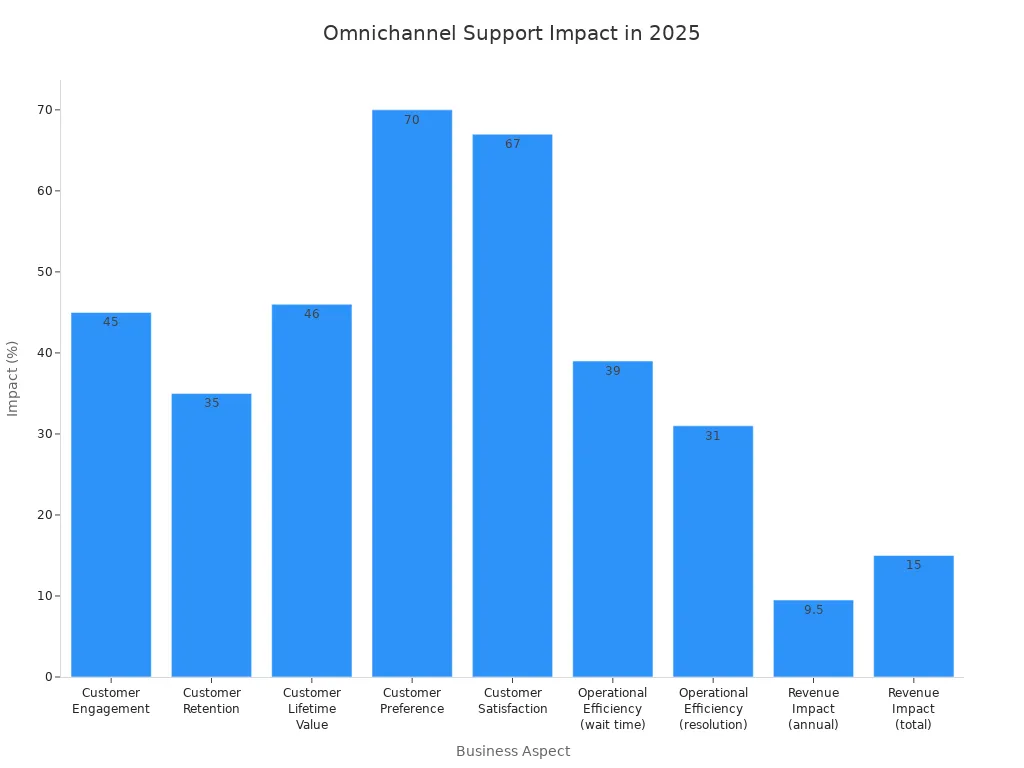
Sobot’s platform helps ecommerce brands deliver the kind of customer support that shoppers expect in 2025. By unifying data and channels, Sobot empowers teams to provide consistent, high-quality ecommerce customer care every time.
Proactive Automation in Customer Care
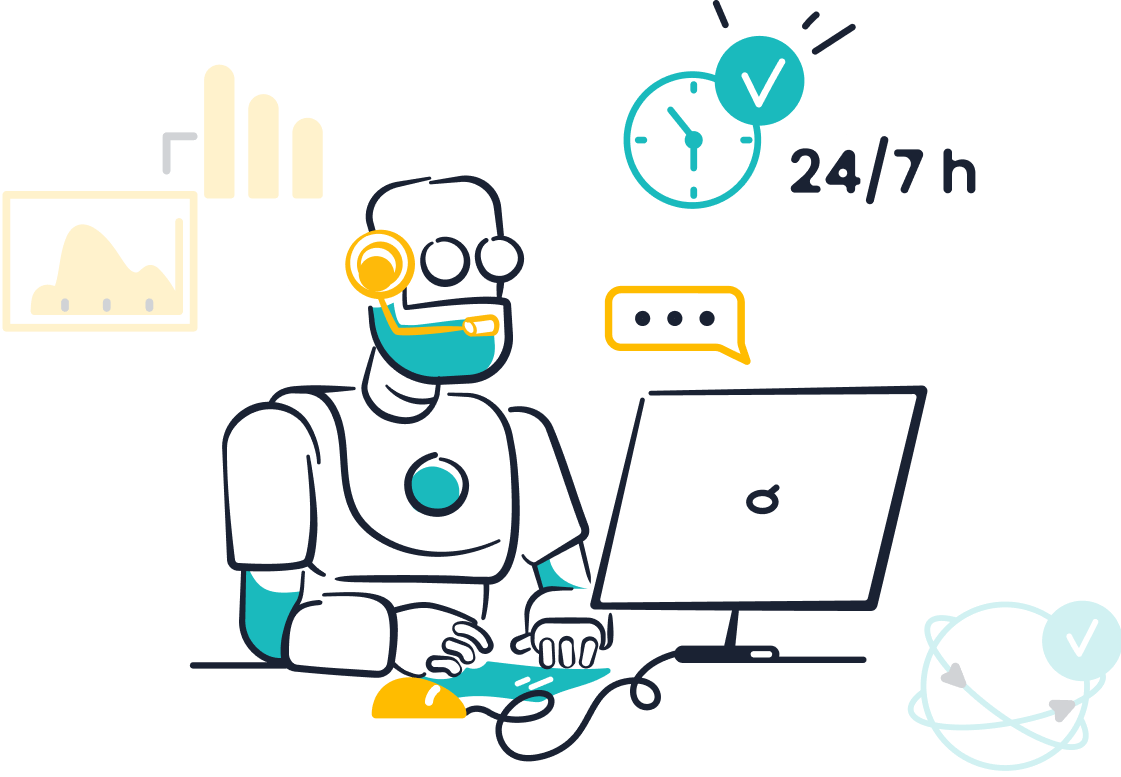
Chatbots and Self-Service
Automation now plays a central role in ecommerce customer care. In 2025, businesses rely on chatbots and self-service tools to handle high volumes of customer requests. Sobot’s AI Chatbot stands out by providing instant answers, guiding users through common issues, and reducing the need for human intervention. This approach helps companies lower response times and cut operational costs.
Many ecommerce brands see strong results from automation. About 60% of B2B companies and 42% of B2C companies use chatbot software. Adoption rates are expected to rise by 34% in 2025. Customers also respond positively. Over 96% believe businesses using chatbots deliver good service, and 82% are willing to interact with chatbots if agents are not available. Chatbots now resolve 90% of queries in fewer than 11 messages (source). These numbers show that self-service is not just a trend but a proven strategy for ecommerce.
Sobot’s chatbot operates 24/7, supports multiple languages, and integrates with channels like WhatsApp and SMS. This flexibility ensures customers get help whenever they need it, boosting satisfaction and loyalty.
Anticipating Needs
AI-driven automation does more than answer questions. In 2025, leading ecommerce platforms use AI to predict what customers need before they ask. Sobot’s solutions analyze customer data to spot patterns and send proactive messages. For example, if a customer’s order faces a delay, the system can notify them and offer support options automatically.
This proactive approach builds trust and keeps customers informed. Brands that anticipate needs see higher retention and more repeat purchases. Automation frees up agents to focus on complex issues, while AI handles routine tasks. Ecommerce companies that embrace proactive automation set new standards for customer care and efficiency.
Human Touch in Digital Service
Balancing Automation
Ecommerce brands in 2025 face a unique challenge. They must balance advanced automation with genuine human interaction. While AI and chatbots handle many tasks, shoppers still value empathy and understanding. A recent PwC study found that 59% of consumers feel companies have lost touch with the human element of customer experience (source). This insight shows that technology alone cannot meet every need.
Sobot recognizes this shift. Its platform allows seamless handoffs from AI chatbots to live agents. When a customer needs a personal touch, Sobot routes the conversation to a trained support team member. This approach ensures that ecommerce businesses deliver both speed and empathy. In 2025, brands that blend automation with human care will stand out in a crowded market.
Empowering Support Teams
Support teams play a vital role in ecommerce success. In 2025, technology empowers agents to work smarter, not harder. Sobot’s unified workspace gives agents access to all customer interactions and order histories in one place. This setup reduces time spent searching for information and allows agents to focus on solving problems.
Tip: Empowered agents can resolve issues 50% faster when they have the right tools and data.
Sobot’s training resources and AI-driven suggestions help agents improve their skills. With these tools, support teams deliver consistent, high-quality customer service. Customers notice the difference. They feel heard and valued, which leads to higher satisfaction and loyalty. Ecommerce brands that invest in their teams see better results and stronger relationships in 2025.
Data Privacy and Trust
Transparent Practices
Data privacy stands as a top concern for ecommerce brands in 2025. Customers want to know how companies use and protect their information. A recent survey by Cisco found that 86% of consumers care about data privacy, and 79% will switch brands if they feel their data is not handled properly (source). Brands must show clear and honest practices to build trust.
Sobot helps ecommerce businesses maintain transparency. The platform uses secure data storage and follows strict privacy standards. Sobot provides clear privacy policies and easy-to-understand consent forms. Customers can see what data is collected and how it is used. This approach helps brands meet global regulations and customer expectations in 2025.
Note: Transparent privacy practices can increase customer trust and loyalty. Customers who trust a brand are more likely to return and recommend it to others.
Building Confidence
Building confidence in ecommerce means more than just following rules. Brands must show customers that their data is safe at every step. Sobot’s solutions use advanced encryption and regular security updates. These features protect customer information from threats.
Support teams using Sobot can access only the data they need to help customers. This limits risk and keeps sensitive details secure. Sobot also offers training for agents on privacy best practices. When customers see these efforts, they feel more confident shopping online.
A table below highlights key actions for building trust in ecommerce customer care:
| Action | Benefit |
|---|---|
| Clear privacy policies | Higher customer confidence |
| Data encryption | Stronger data protection |
| Regular audits | Early risk detection |
| Agent training | Fewer privacy mistakes |
In 2025, brands that focus on privacy and trust will stand out in the ecommerce market. Sobot supports these goals with secure, transparent, and customer-centric solutions.
Sustainability in Ecommerce Trends
Eco-Friendly Support
Sustainability has become a top priority in ecommerce. In 2025, shoppers expect brands to show real commitment to the environment. Recent ecommerce trends reveal that 73% of consumers prefer to buy from companies that support eco-friendly practices (source). Brands now look for ways to reduce their carbon footprint and waste in customer care operations. Many companies have switched to digital receipts, paperless returns, and energy-efficient data centers. These changes help lower environmental impact and meet the demands of modern online shopping trends.
Sobot supports eco-friendly initiatives by offering digital-first solutions. Its AI Chatbot and omnichannel platform reduce the need for printed materials and physical call centers. Businesses using Sobot can handle customer inquiries online, saving energy and resources. This approach aligns with the latest ecommerce trends and helps brands build a greener reputation.
Tip: Brands can further reduce waste by encouraging customers to use self-service options and digital communication channels.
Ethical Customer Care
Ethical customer care goes beyond environmental action. In 2025, ecommerce brands must also focus on fair labor, data protection, and honest communication. Shoppers want to support companies that treat employees well and respect privacy. According to a recent survey, 62% of consumers will stop buying from brands they see as unethical (source).
Sobot helps brands deliver ethical service by providing secure, transparent customer care tools. Its platform ensures that customer data stays protected and that agents follow best practices. Sobot’s training resources teach support teams about privacy and ethical standards. This commitment to values-driven service sets a new standard for ecommerce in 2025.
Companies that embrace sustainability and ethics stand out in a crowded market. These trends shape the future of ecommerce and influence every part of the customer journey.
Future of Ecommerce Customer Care
Voice AI and AR/VR
Voice AI and AR/VR are shaping the next wave of ecommerce customer care. In 2025, more brands use voice assistants to help shoppers find products, track orders, and get support. According to Juniper Research, voice commerce will reach $80 billion by 2025 (source). This growth shows how voice AI is changing the way people interact with online stores.
AR/VR technology also brings new experiences to ecommerce. Shoppers can use AR to see how products look in their homes or try on clothes virtually. These tools make online shopping more interactive and personal. Sobot prepares for these trends by building solutions that support voice channels and integrate with new technologies. Its platform helps brands deliver support through voice, chat, and even future AR/VR channels, keeping customer care ahead of the curve.
Note: Brands that adopt voice AI and AR/VR can stand out in a crowded market and meet the latest online shopping trends.
Loyalty and Retention
Customer loyalty remains a top priority for ecommerce brands. In 2025, companies use advanced tools to keep shoppers coming back. Personalized loyalty programs, powered by AI, reward customers based on their shopping habits. Data from Accenture shows that 57% of consumers spend more with brands that offer personalized experiences (source). These programs boost retention and increase lifetime value.
Sobot supports these efforts with unified customer data and smart automation. Its solutions help brands track customer journeys, send targeted offers, and respond quickly to feedback. By using Sobot, ecommerce businesses can build stronger relationships and adapt to changing trends. The future of customer care will focus on loyalty, retention, and seamless experiences across every channel.
Ecommerce customer care in 2025 continues to evolve with AI, omnichannel support, automation, and sustainability shaping online shopping trends. Brands see higher customer satisfaction and business growth by embracing these ecommerce trends. Sobot’s all-in-one solutions help companies deliver seamless, secure, and eco-friendly customer care. To stay ahead, brands should unify channels, automate routine tasks, and prioritize data privacy. Adopting innovative tools like Sobot ensures success in the fast-changing ecommerce landscape.
Tip: Start with a free Sobot demo to experience next-generation ecommerce customer care firsthand.
FAQ
What makes customer support important for ecommerce in 2025?
Customer support helps brands build trust and loyalty. In 2025, 86% of buyers say they will pay more for better service. Fast, helpful support increases customer satisfaction and keeps shoppers coming back. Sobot’s AI tools help brands deliver quick, accurate answers.
How does AI improve customer service for online stores?
AI handles routine questions and provides instant help. For example, Sobot’s chatbot answers order queries 24/7 and supports multiple languages. This technology boosts agent productivity by 70% and reduces costs by up to 50%. AI also helps predict customer needs.
Why do ecommerce trends focus on omnichannel experiences?
Omnichannel support lets shoppers switch between chat, voice, and WhatsApp without losing context. Brands using unified platforms like Sobot see a 35% increase in customer retention. Seamless experiences lead to higher satisfaction and more repeat purchases.
How do brands ensure data privacy in ecommerce customer care?
Brands use secure platforms and clear privacy policies. Sobot follows strict privacy standards and uses advanced encryption. Customers can see how their data is used, which builds trust and confidence in online shopping trends.
What role does sustainability play in customer service?
Sustainability matters to shoppers. In 2025, 73% prefer brands with eco-friendly practices. Sobot’s digital-first solutions help reduce paper waste and energy use. Brands that support green initiatives improve their reputation and meet customer expectations.
See Also
Best Live Chat Tools For Online Stores In 2024
Ways Live Chat Solutions Increase Ecommerce Revenue
Chatbots Enhancing Customer Experience In Ecommerce
